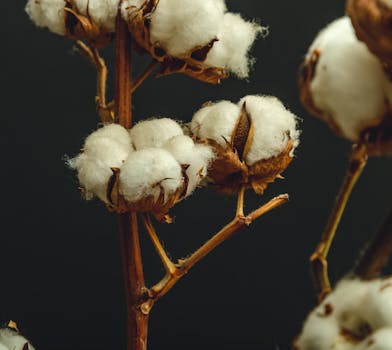Natural Fibers, Global Markets: Africa’s Role in the Sustainable Textile Revolution

Natural Fibers, Global Markets: Africa’s Role in the Sustainable Textile Revolution
Natural Fibers, Global Markets: Africa’s Role in the Sustainable Textile Revolution
Africa is poised to play a significant role in the sustainable textile revolution, driven by the growing demand for natural fibers. The continent’s rich resources, including cotton, hemp, and flax, make it an ideal location for the production of eco-friendly textiles. As consumers become increasingly aware of the environmental impact of their purchasing decisions, the demand for sustainable textiles is on the rise.
The global textile industry is one of the largest polluters in the world, with the production of synthetic fibers such as polyester and nylon contributing to greenhouse gas emissions and microplastic pollution. In contrast, natural fibers such as cotton, hemp, and flax are biodegradable and require less water and pesticides to produce. Africa has the potential to become a leader in the production of sustainable textiles, with many countries on the continent already investing in the development of natural fiber industries.
The Benefits of Natural Fibers
Natural fibers have a number of benefits, including their biodegradability, breathability, and durability. They are also often less expensive to produce than synthetic fibers, making them an attractive option for textile manufacturers. In addition, natural fibers can be used to create a wide range of textiles, from clothing and fabrics to insulation and composite materials.
Cotton is one of the most widely produced natural fibers in Africa, with countries such as Egypt, South Africa, and Nigeria being among the top producers. However, other natural fibers such as hemp and flax are also being cultivated on the continent, with Kenya and Tanzania emerging as major producers of these crops. The production of natural fibers in Africa is not only beneficial for the environment, but also provides economic benefits for local communities.
Africa’s Role in the Sustainable Textile Revolution
Africa has the potential to play a significant role in the sustainable textile revolution, with many countries on the continent already investing in the development of natural fiber industries. The African Continental Free Trade Area (AfCFTA) has also created new opportunities for the growth of the textile industry, with the agreement aiming to increase trade and investment between African countries.
In addition, a number of international organizations and companies are working to support the development of the natural fiber industry in Africa. For example, the International Cotton Advisory Committee (ICAC) is working to promote the production and trade of cotton in Africa, while companies such as H&M and Patagonia are investing in sustainable textile production on the continent.
Challenges and Opportunities
Despite the many benefits of natural fibers, there are also challenges associated with their production. One of the main challenges is the lack of infrastructure and technology in many African countries, which can make it difficult to produce and process natural fibers. Additionally, the production of natural fibers can be labor-intensive, which can increase costs and make it difficult for producers to compete with synthetic fibers.
However, there are also many opportunities associated with the production of natural fibers in Africa. For example, the growth of the natural fiber industry could create new job opportunities and stimulate economic growth in rural areas. Additionally, the production of natural fibers could help to reduce the continent’s reliance on imported textiles, which could help to boost local economies.
In conclusion, Africa is poised to play a significant role in the sustainable textile revolution, driven by the growing demand for natural fibers. The continent’s rich resources, including cotton, hemp, and flax, make it an ideal location for the production of eco-friendly textiles. While there are challenges associated with the production of natural fibers, there are also many opportunities for growth and development in this sector.







